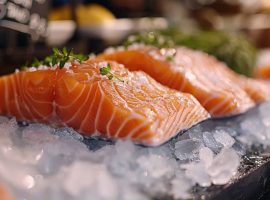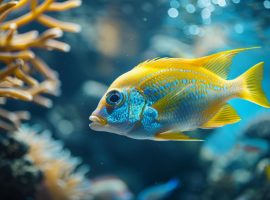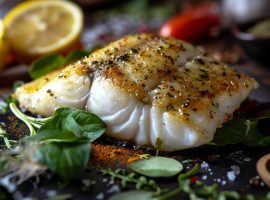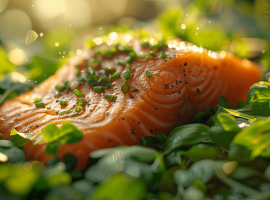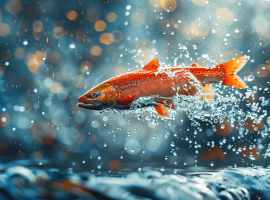Exploring B12-Rich Fish Varieties
When considering dietary sources of Vitamin B12, certain fish species stand out for their substantial content of this essential nutrient. Sardines, salmon, trout, and tuna are renowned for their high Vitamin B12 levels, offering a potent means to fulfil daily nutritional requirements. The B12 content can vary between wild-caught and farmed fish, with wild-caught often having a slight edge due to their natural diets.
B12 Content: Wild vs. Farmed Fish
The debate between wild-caught and farmed fish’s nutritional value is ongoing. Generally, wild-caught fish may have a more varied diet, which can lead to higher levels of certain nutrients, including Vitamin B12. However, farmed fish are often fed a controlled diet that can be fortified with vitamins, potentially levelling the playing field.
Serving Sizes for B12 Requirements
To meet the daily B12 requirements, adults should aim for a serving size of 2.4 micrograms per day. A single serving of cooked salmon can provide well over the daily recommended amount, making it an excellent choice for those looking to boost their intake.
Freshness and Nutrient Retention at “Frozen Fish Direct”
Frozen Fish Direct prides itself on its commitment to quality and nutrient retention. By flash-freezing fish at sea, they are able to lock in freshness along with the Vitamin B12 content. This method ensures that the fish retains its nutritional value from the moment of capture to the consumer’s plate, providing a reliable source of this crucial vitamin.
The Essential Role of Vitamin B12 in Health
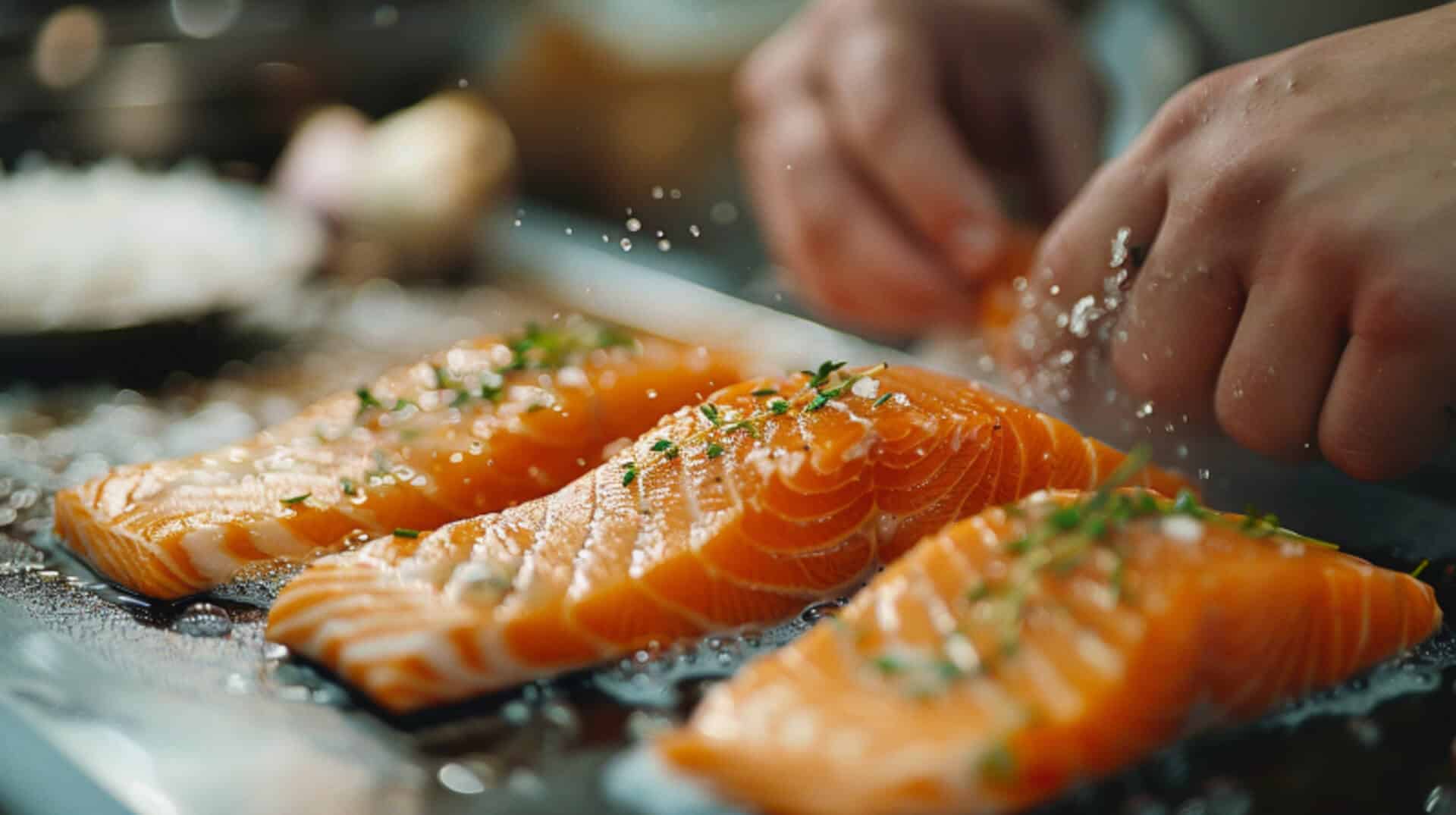
Vitamin B12, a water-soluble vitamin, is vital for the proper functioning of the nervous system and the production of DNA and red blood cells. It is a co-factor in the synthesis of neurotransmitters, which are crucial for brain communication, and it aids in the metabolism of every cell in the human body, particularly affecting DNA regulation and synthesis.
Bodily Functions Supported by Vitamin B12
Adequate intake of vitamin B12 is essential for neurologic function, with a deficiency potentially leading to irreversible nerve damage. It also plays a pivotal role in mental health, with some studies suggesting a link between B12 deficiency and depression. Furthermore, B12 is integral to the formation of red blood cells; a lack of it can result in anaemia, leading to fatigue and weakness.
Manifestations of Vitamin B12 Deficiency
Deficiency in vitamin B12 can manifest in various ways, including neurological changes such as numbness and tingling in the hands and feet, difficulties in maintaining balance, anaemia, fatigue, memory disturbances, and mood swings.
Health Improvements from B12-Rich Fish
Incorporating B12-rich fish into your diet can improve overall health and well-being. Fish such as salmon, trout, and sardines not only provide a rich source of B12 but also contribute to heart health due to their omega-3 fatty acid content. Regular consumption of these fish can support the maintenance of optimal neurological and cardiovascular health.
Comprehensive Nutrient Profiles of B12-Rich Fish
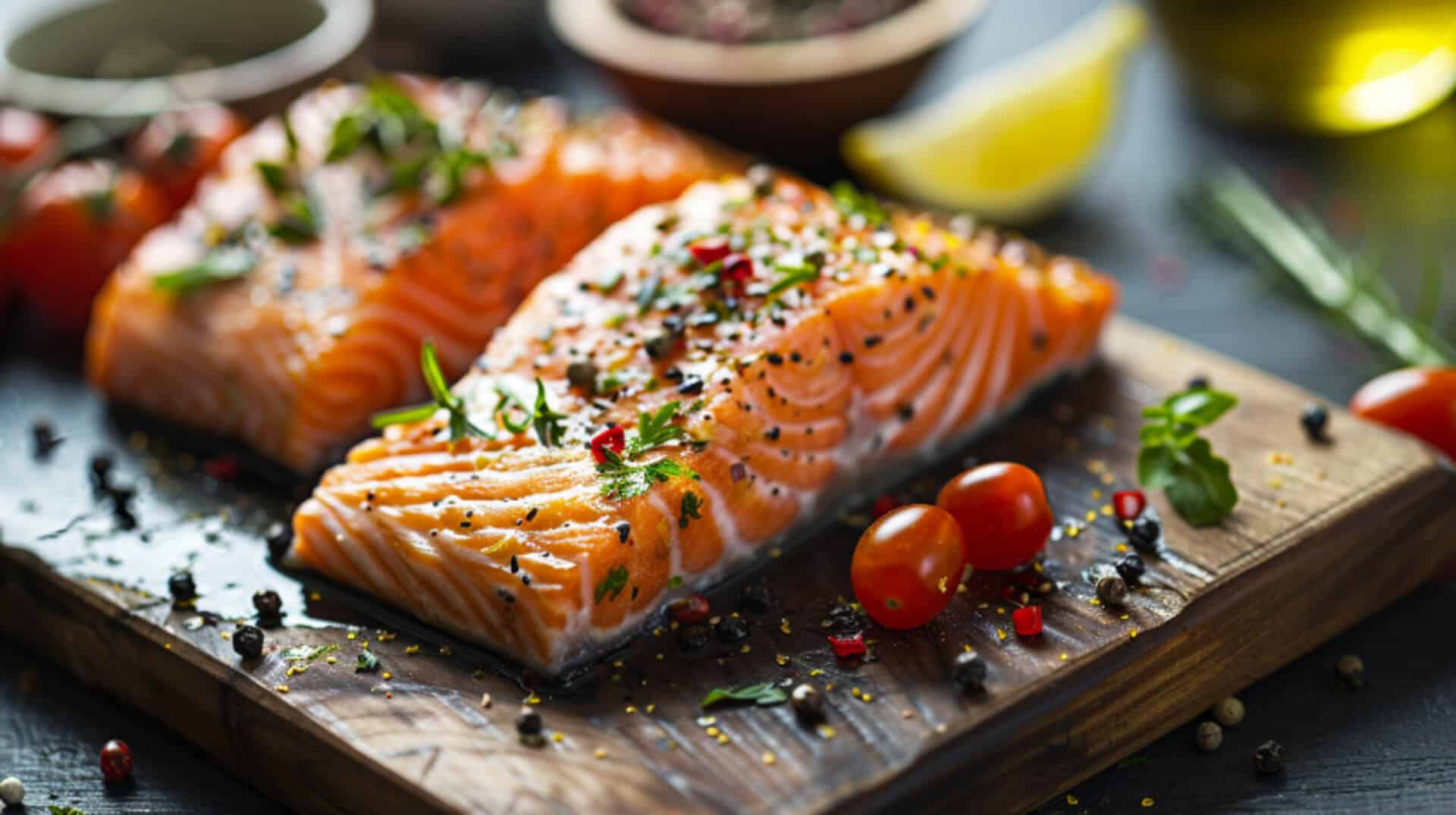
When considering fish as a source of Vitamin B12, it’s important to recognise the additional nutrients they provide. Fish high in B12 also typically contain omega-3 fatty acids, protein, selenium, and vitamins D and B2. These nutrients work synergistically to support cardiovascular health, cognitive function, and overall well-being.
Synergy of Omega-3 Fatty Acids and Vitamin B12
Omega-3 fatty acids, found abundantly in fish like salmon and mackerel, enhance the cardiovascular benefits of vitamin B12. They are known for their anti-inflammatory properties and their role in brain health, which complements the neurological benefits of B12.
Optimal Fish Selection for Nutrient Profiles
Certain fish species stand out for their nutrient profiles. For instance, sardines and salmon are not only high in B12 but also provide a rich source of omega-3s and vitamin D. These fish are particularly beneficial for individuals focusing on heart and brain health.
Dietary Implications of Nutrient-Dense Fish
The nutritional profiles of these fish have significant implications for various dietary needs. For those with restrictions or specific health goals, incorporating a variety of B12-rich fish can help meet dietary requirements while also providing a range of other essential nutrients.
Addressing Mercury Concerns in Fish Consumption
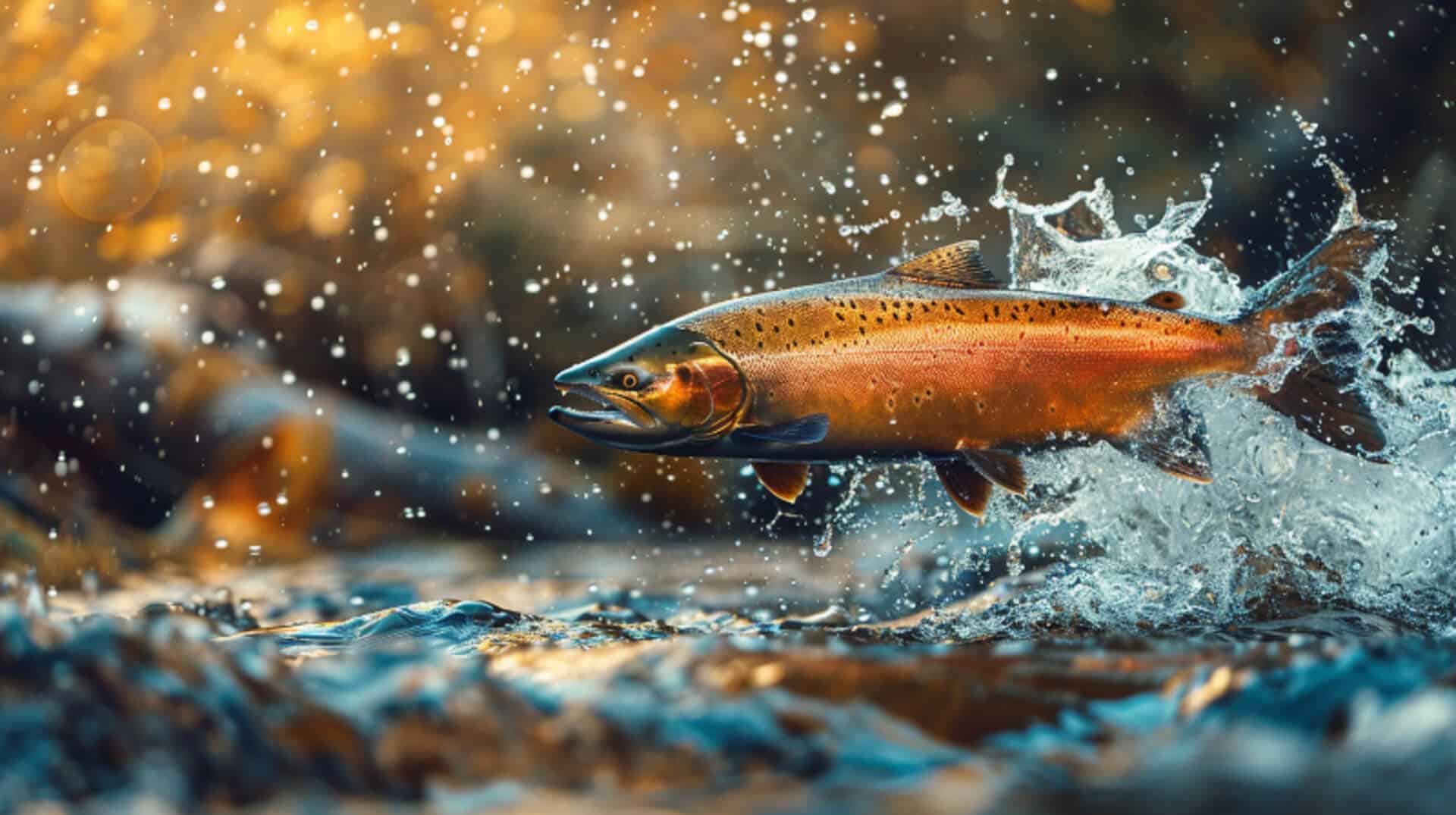
Mercury exposure from fish is a valid concern, particularly for pregnant women and young children. However, the risk varies depending on the type of fish. Larger, longer-lived predatory fish tend to accumulate higher levels of mercury.
Selecting Low-Mercury Fish for Safe Consumption
For those seeking Vitamin B12 benefits without the mercury risk, options include:
- Sardines: Small and short-lived, sardines have lower mercury levels.
- Salmon: Both wild-caught and farmed salmon are typically low in mercury.
- Trout: Freshwater trout is another safe choice, especially when farmed responsibly.
Mitigating Mercury Risk with “Frozen Fish Direct”
“Frozen Fish Direct” addresses mercury concerns by:
- Sourcing from fisheries that adhere to strict environmental standards.
- Providing transparency about the origin and type of fish.
- Offering a selection of low-mercury fish, ensuring a safer consumption experience.
Best Practices for Minimising Mercury Exposure
Consumers can minimise mercury exposure by:
- Choosing smaller, non-predatory fish.
- Limiting consumption of high-mercury fish like shark, swordfish, and king mackerel.
- Checking advisories for locally caught fish.
By following these guidelines, you can enjoy the health benefits of fish rich in Vitamin B12 while minimising the risks associated with mercury.
Sustainable Seafood: A Vital Choice for Vitamin B12 Intake
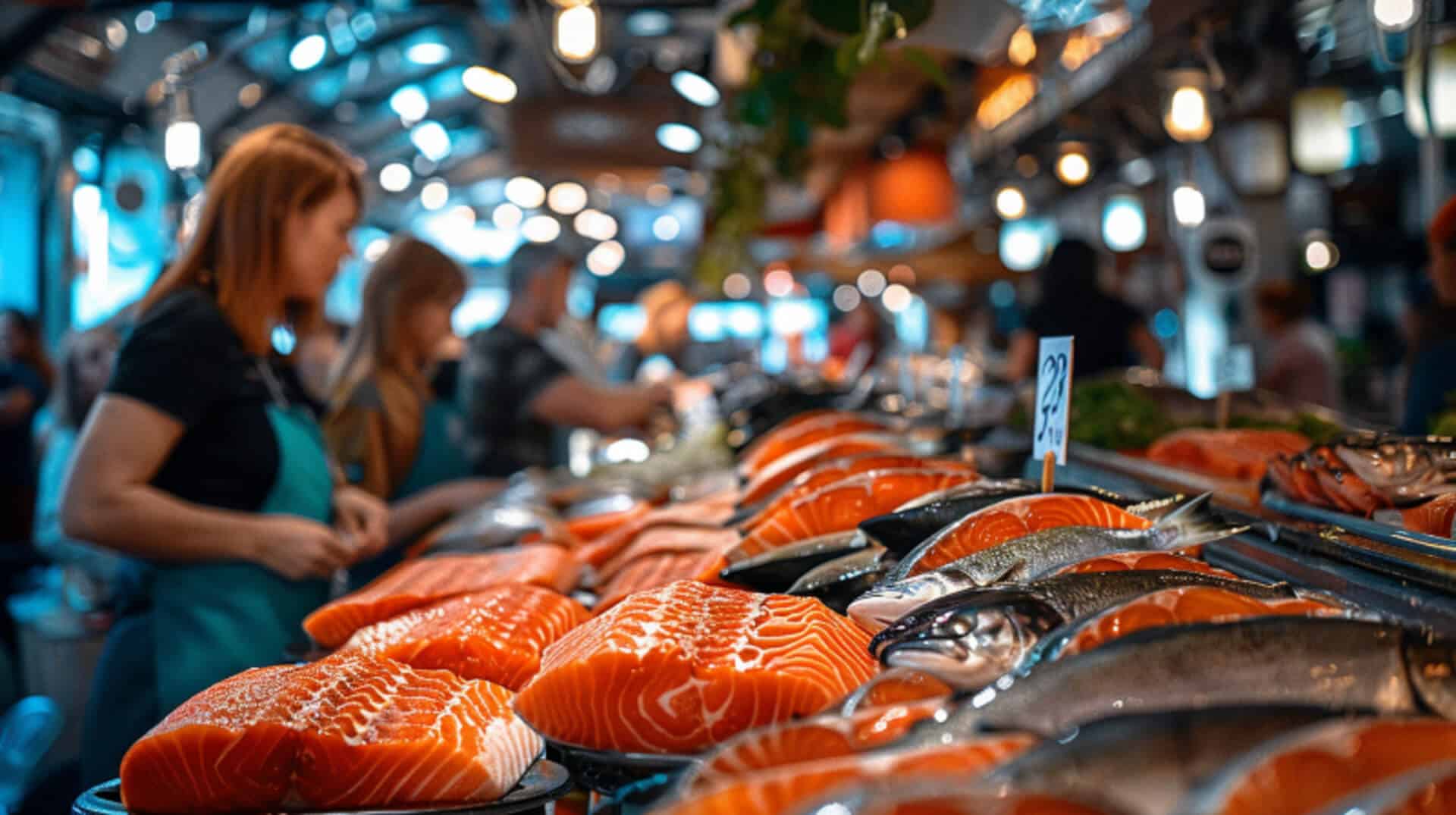
Sustainability in seafood selection is not just an environmental concern; it also ensures the ongoing availability of fish that are rich in essential nutrients like Vitamin B12. Sustainable fishing practices help maintain fish populations and ecosystems, ensuring that future generations can continue to benefit from these nutrient-rich sources.
B12-Rich Fish from Sustainable Sources
When selecting fish for their B12 content, consider these sustainable options:
- Alaskan Salmon: Wild-caught and managed to prevent overfishing.
- Pacific Sardines: Abundant and harvested with minimal bycatch.
- Rainbow Trout: Often farmed in environmentally responsible ways.
The Impact of Sustainable Choices on Health and Environment
Choosing sustainable seafood has a dual benefit:
- Environmental Health: It supports marine biodiversity and helps maintain the balance of aquatic ecosystems.
- Personal Health: It ensures that the fish you consume is free from harmful levels of pollutants and is rich in nutrients.
“Frozen Fish Direct” and Sustainable Practices
“Frozen Fish Direct” plays a pivotal role by:
- Offering a selection of sustainably sourced seafood.
- Ensuring that their products meet strict standards for environmental stewardship.
- Providing transparency about the origins of their fish, empowering you to make informed choices.
By opting for B12-rich fish from sustainable sources, you contribute to the health of the planet while nourishing your body with essential nutrients.
Optimal Cooking Methods for Preserving Vitamin B12 in Fish

When preparing fish, certain cooking methods can preserve the Vitamin B12 content more effectively. To maintain the integrity of this essential nutrient, gentle cooking methods are recommended.
Techniques to Maximise Vitamin B12 Retention
- Steaming: This method prevents Vitamin B12 from leaching into cooking water.
- Baking: Cooking fish in the oven at moderate temperatures can help retain its B12 content.
- Sauting: Quick cooking over low heat can preserve B12 and prevent nutrient degradation.
Enhancing B12 Absorption Through Preparation
- Marinating: Incorporating lemon juice or vinegar can aid in the absorption of Vitamin B12.
- Combining with Vitamin C-rich Foods: Serving fish with vegetables high in Vitamin C may enhance B12 absorption.
Impact of Cooking on Nutritional Benefits
Cooking fish not only affects Vitamin B12 levels but also influences the availability of other nutrients:
- Omega-3 Fatty Acids: These are preserved best with low-heat cooking methods.
- Proteins: Remain intact across most cooking methods, ensuring fish’s status as a high-quality protein source.
Guidance from “Frozen Fish Direct”
Frozen Fish Direct” offers advice on cooking methods to maximise nutrient retention:
- Providing customers with preparation tips that maintain freshness and nutritional value.
- Suggesting recipes that highlight the natural flavours and health benefits of their seafood products.
Balancing B12 Intake with a Diverse Diet
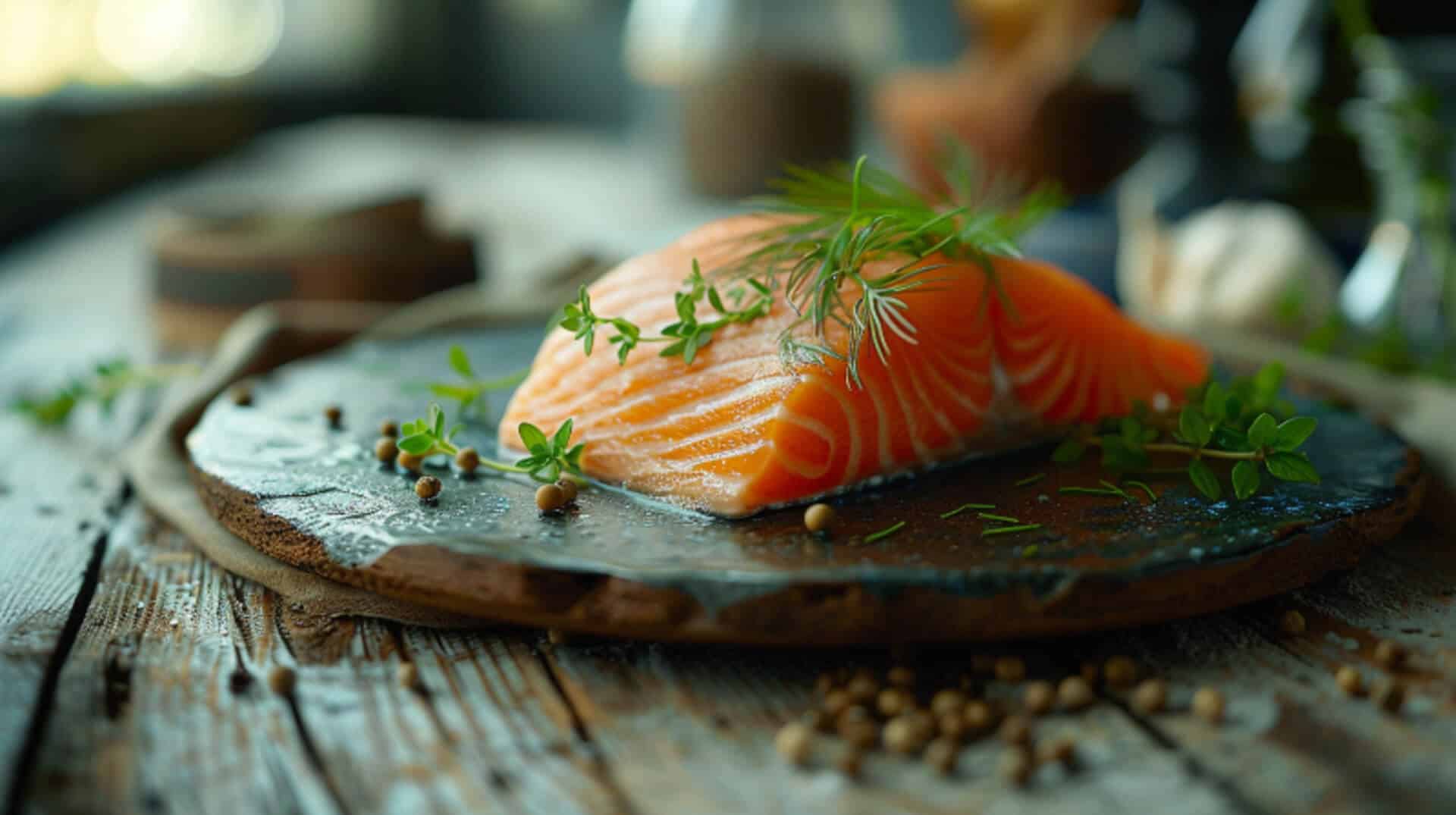
A balanced intake of Vitamin B12 is crucial for maintaining optimal health, and while fish is a rich source, it’s not the only one. Diversifying your diet can ensure adequate B12 levels, especially if you have dietary restrictions or preferences.
Complementary B12 Sources to Fish
For those looking to complement their fish intake with other B12 sources, consider the following:
- Animal Liver and Kidneys: These are among the richest sources of B12.
- Eggs and Dairy Products: They provide a good amount of B12, especially for vegetarians.
- Fortified Foods: Many cereals and non-dairy milks are fortified with B12, making them suitable for a variety of diets.
Vegetarian and Vegan Sources of Vitamin B12
Vegetarians and vegans can maintain their B12 levels by:
- Nutritional Yeast: Often fortified with B12, it can be a flavourful addition to meals.
- Vegan Supplements: These provide a direct source of B12 and can be tailored to individual needs.
The Benefits of Dietary Diversity
Incorporating multiple B12 sources into your diet can:
- Prevent Deficiencies: A varied diet reduces the risk of missing out on essential nutrients.
- Enhance Nutrient Absorption: Different foods can aid in the absorption of B12 and other vitamins.
“Frozen Fish Direct” and Diverse Dietary Needs
“Frozen Fish Direct” caters to diverse dietary needs by:
- Offering a wide range of fish, providing options for pescatarians.
- Including information on the B12 content of their products to help customers make informed choices.
Alternatives for Vitamin B12 Intake Without Fish
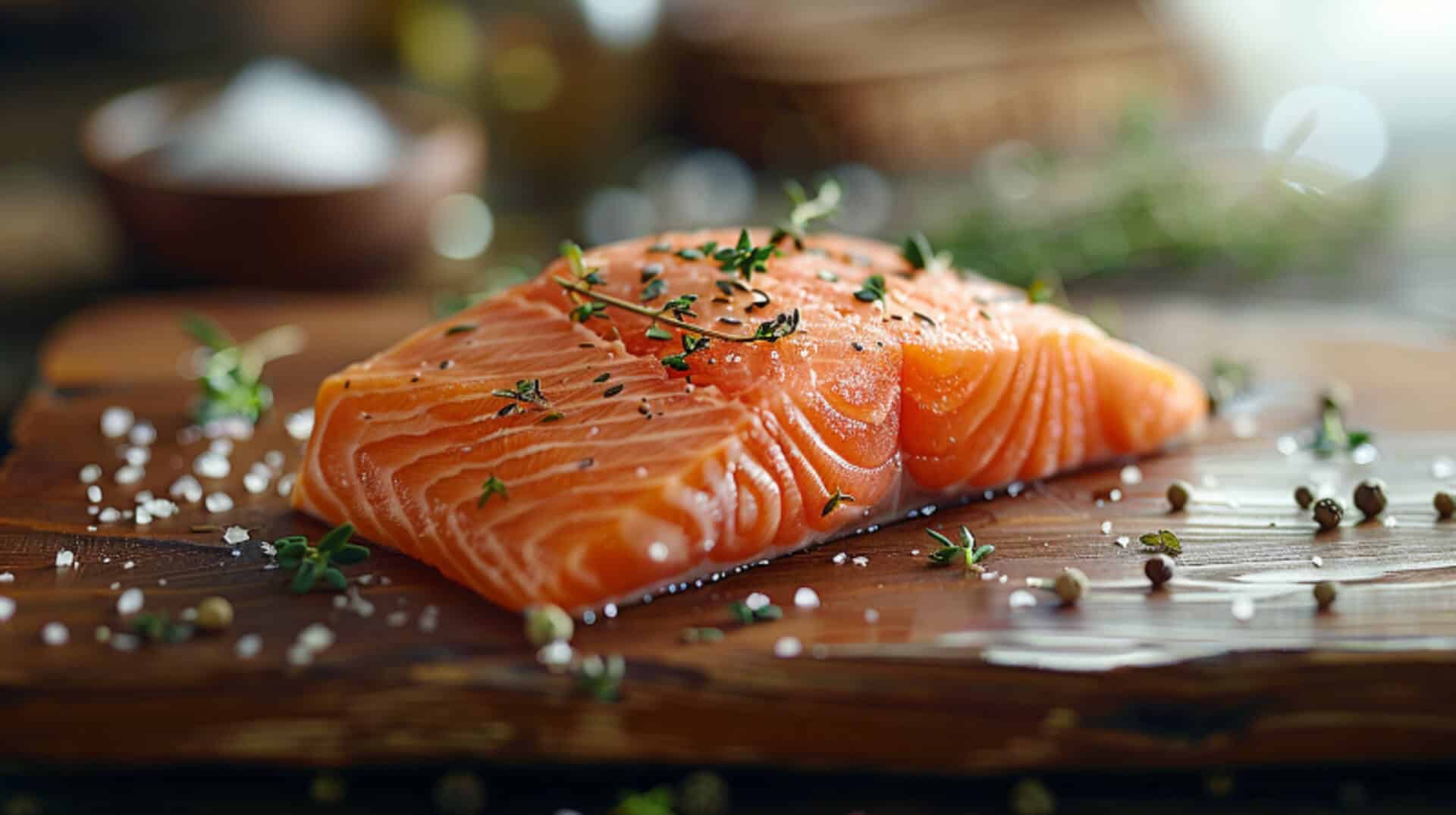
For individuals with fish allergies or dietary preferences that exclude fish, there are several viable sources of Vitamin B12.
Fortified Foods as a Source of B12
Fortified foods can be a significant source of Vitamin B12, especially for those who cannot consume fish. These include:
- Fortified Cereals: A convenient breakfast option that can provide a substantial amount of the daily B12 requirement.
- Non-Dairy Milks: Many are fortified with B12, catering to vegans and those with lactose intolerance.
Efficacy of B12 Supplements
Vitamin B12 supplements are an effective alternative and come in various forms:
- Tablets and Capsules: Easy to consume and can be tailored to individual dosage needs.
- Sublingual Preparations: Designed to be absorbed under the tongue for those with absorption issues.
When selecting supplements, consumers should look for:
- Certified Products: Ensuring quality and accurate dosage.
- Form of B12: Methylcobalamin or cyanocobalamin, depending on individual health requirements.
Guidance from “Frozen Fish Direct”
“Frozen Fish Direct” provides support for customers seeking B12 sources beyond fish:
- Nutritional Information: Detailed information on the B12 content of their seafood products.
- Alternative Recommendations: Advice on other B12-rich foods and supplements for those with allergies or dietary restrictions.
Incorporating B12-Rich Fish into Your Diet
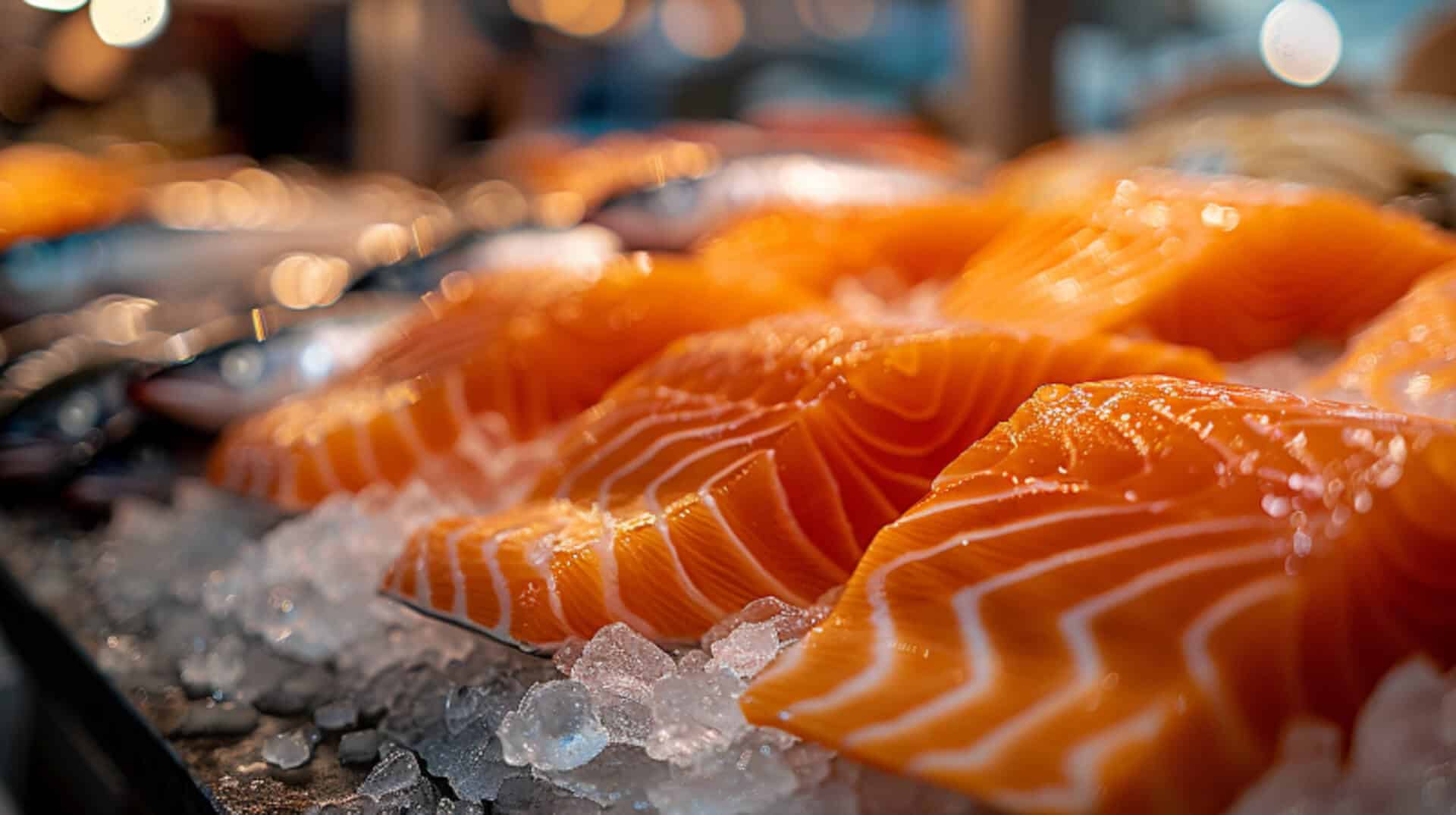
Incorporating fish into your diet is a straightforward way to boost your intake of Vitamin B12. Here are some practical tips to help you increase your consumption of B12-rich fish:
Simple Ways to Add Fish to Your Meals
- Mix into Salads: Toss chunks of tuna or salmon into your greens.
- Wrap it Up: Create fish tacos with cabbage slaw and a squeeze of lime for a quick meal.
- Top Your Pizza: Add anchovies or sardines for a savoury flavour boost.
Creative Use of Fish in Various Cuisines
Fish is versatile and can be adapted to a range of cuisines:
- Asian Flavours: Stir-fry with teriyaki or soy sauce and serve over rice.
- Mediterranean Dishes: Grill fish with olive oil, garlic, and herbs.
- Scandinavian Inspiration: Try smoked fish on crispbread with cream cheese.
Quick and Easy Fish Recipes
For quick and nutritious recipes:
- Grilled Sardines: A few minutes under the broiler and they’re ready to eat.
- Salmon Patties: Combine canned salmon with breadcrumbs and eggs, then pan-fry.
“Frozen Fish Direct” Cooking Tips
Frozen Fish Direct” supports your culinary exploration by:
- Providing recipes that highlight the natural flavours and nutritional benefits of their seafood.
- Offering tips on the best ways to cook their products to retain maximum nutrients and freshness.
Deciphering Fish Labels and Certifications
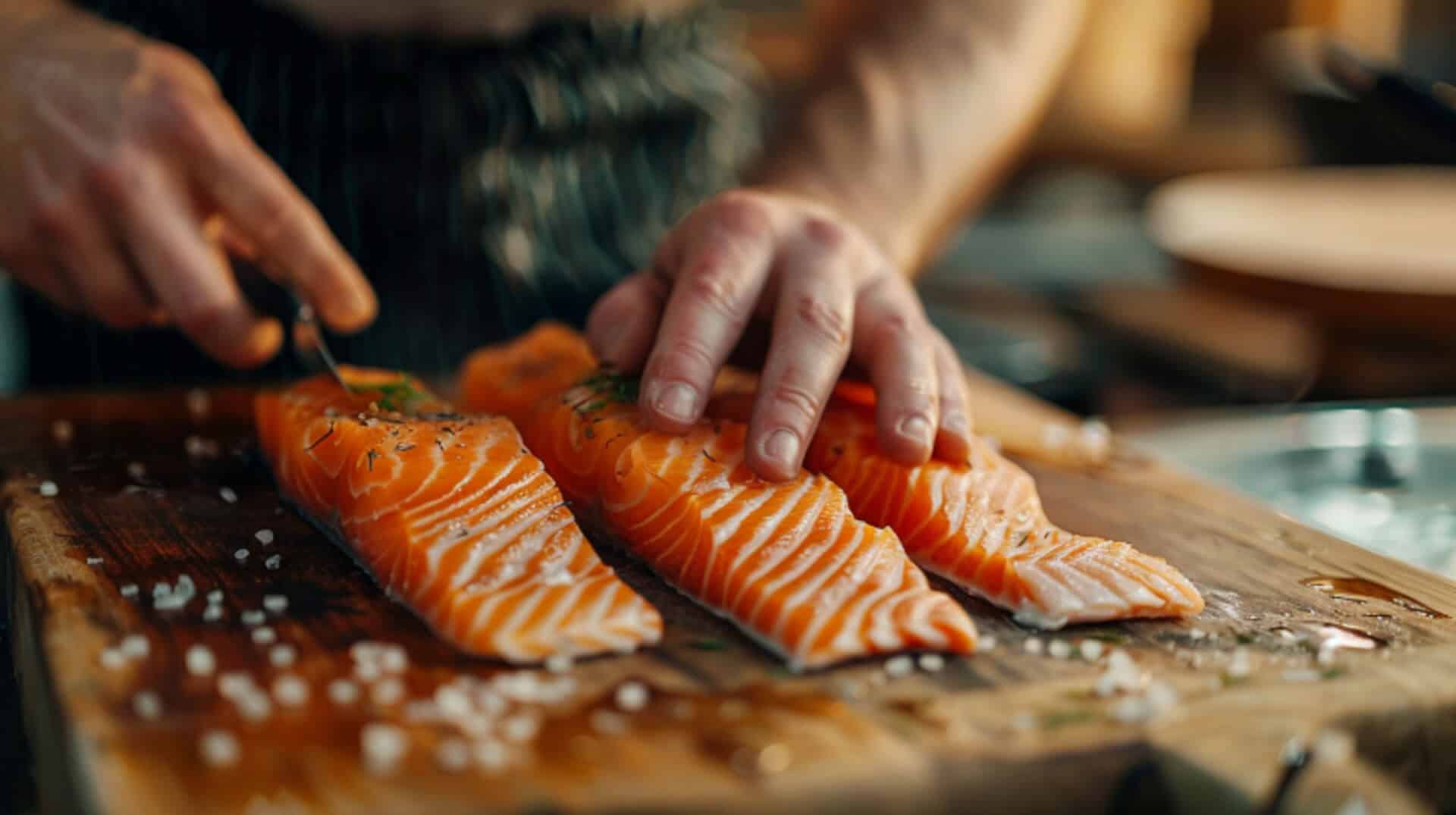
Navigating the sea of labels and certifications on fish products can be daunting. These markers provide insights into the sustainability, fishing practices, and overall quality of the seafood you purchase.
Interpreting Labels for Informed Seafood Purchases
Labels and certifications on fish products serve as a guide to:
- Sustainability: Indicating whether the fish was sourced in a way that maintains fish populations and ecosystems.
- Fishing Practices: Providing information on how the fish was caught, which can affect its quality and environmental impact.
- Quality Assurance: Certifications often mean the fish has met certain standards regarding freshness and handling.
Prioritising Certifications for Health and Sustainability
When selecting fish, look for certifications that emphasise:
- Marine Stewardship Council (MSC): Ensures fish is wild-caught with sustainable practices.
- Aquaculture Stewardship Council (ASC): Signifies responsibly farmed seafood.
- Best Aquaculture Practices (BAP): Indicates the fish comes from a facility that meets comprehensive standards for responsible farming.
“Frozen Fish Direct” Commitment to Transparency
“Frozen Fish Direct” labels their products to reflect:
- Traceability: Each product is traceable back to its source, ensuring you know exactly where your fish comes from.
- Certification Standards: Adherence to recognised certifications, reassuring customers of the quality and sustainability of their purchase.
Economic and Cultural Dimensions of Fish Consumption
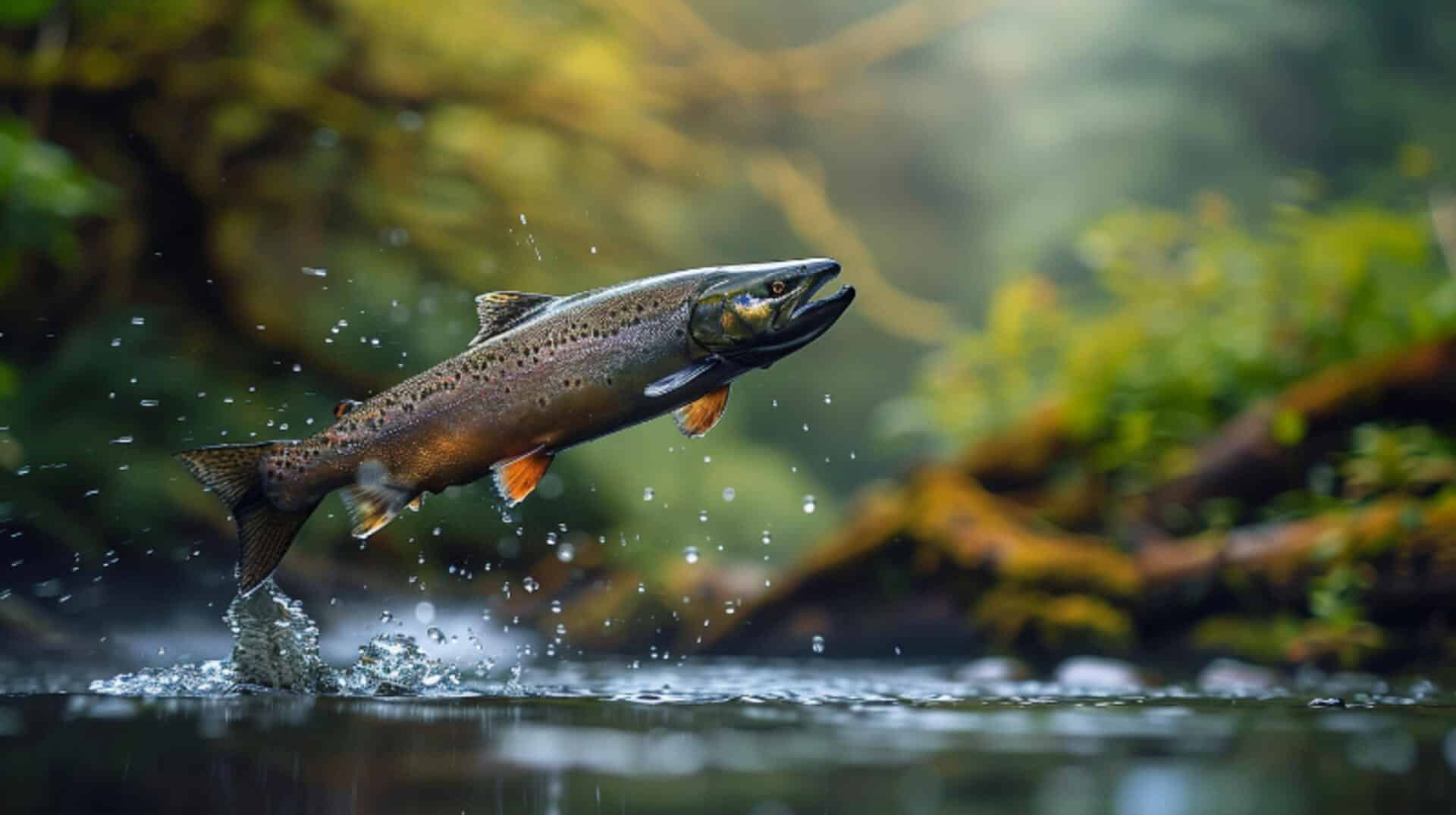
The consumption of fish has far-reaching implications for both local and global economies. It is a significant source of employment, sustenance, and revenue, particularly in coastal communities where fishing is a primary industry.
Fish Consumption’s Impact on Economies
- Local Markets: Fish sales bolster local economies, providing livelihoods for fishermen and those in the seafood supply chain.
- Global Trade: Internationally, fish is a highly traded commodity, influencing trade balances and economic stability.
Cultural Significance of Fish
Fish holds profound cultural importance across societies:
- Dietary Staple: In many cultures, fish is a traditional food source, revered for its nutritional value.
- Festivals and Traditions: Various festivals and cultural practices revolve around the consumption of fish, often linked to historical abundance and community.
Traditions Influencing B12 Intake
Cultural practices directly affect dietary habits, including the intake of Vitamin B12-rich fish:
- Cuisine: Traditional dishes often incorporate local, B12-rich fish, contributing to the nutritional health of the community.
- Fishing Practices: Sustainable methods passed down through generations ensure the continued availability of these vital food sources.
“Frozen Fish Direct” and Community Support
“Frozen Fish Direct” contributes to the economic and cultural fabric by:
- Supporting Local Fisheries: They source from local suppliers, aiding in the preservation of fishing communities.
- Promoting Cultural Heritage: By offering a variety of fish, they help maintain culinary traditions that have been shaped by the availability of these species.
Key Strategies for Maximising Vitamin B12 Intake Through Fish
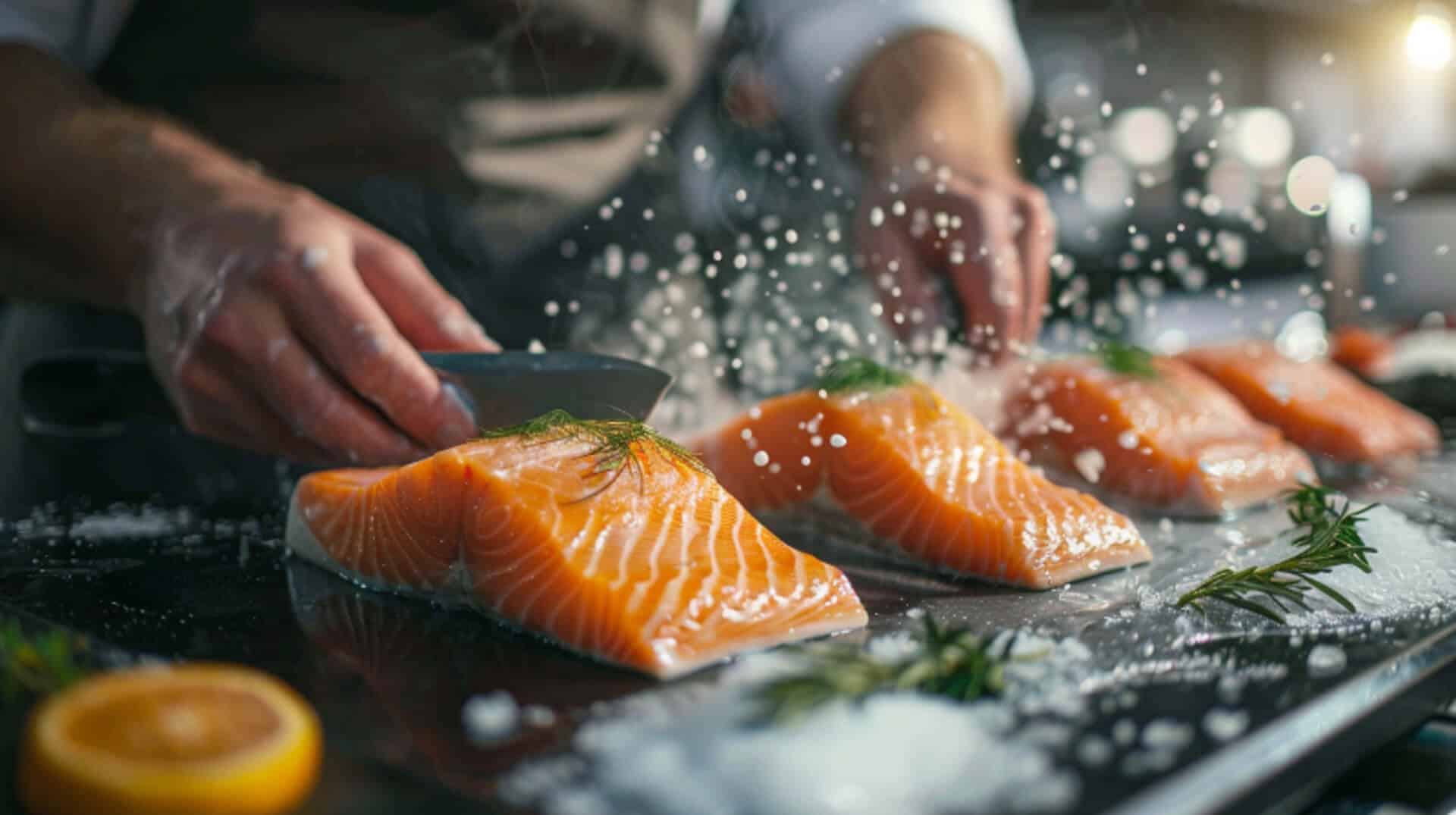
For consumers aiming to enhance their Vitamin B12 intake, understanding which fish to select and how to incorporate them into their diet is essential. Here are the key strategies:
Tailoring Fish Consumption to Health Goals
- Identify B12-Rich Fish: Focus on sardines, salmon, trout, and tuna, known for their high B12 content.
- Consider Serving Sizes: Align fish consumption with the recommended dietary allowance for Vitamin B12, adjusting for age and health status.
Future Dietary Considerations for Vitamin B12
- Diversify Sources: Combine fish with other B12 sources like fortified foods, especially for those with dietary restrictions.
- Stay Informed: Keep abreast of the latest research on B12 absorption and the benefits of various fish species.
“Frozen Fish Direct” and Informed Choices
“Frozen Fish Direct” supports customers by:
- Providing Detailed Product Information: Each fish’s B12 content is clearly stated, aiding in dietary planning.
- Offering a Variety of Options: A wide selection caters to different preferences and dietary needs.
By selecting the right types of fish and preparing them appropriately, you can significantly boost your Vitamin B12 intake, contributing to better health and well-being.

